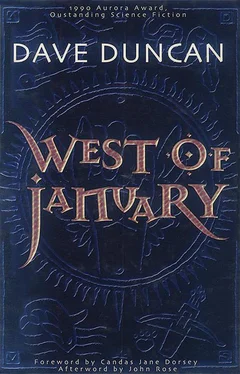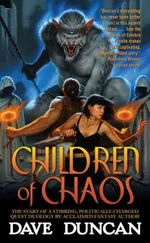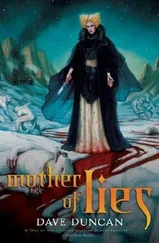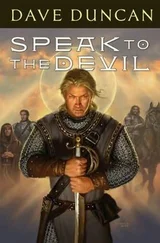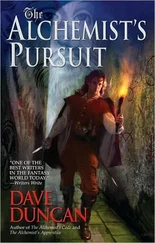Saint Kettle was a regular visitor. A true scholar, was Kettle. He had studied more of the arcane lore than anyone, even Gabriel, his nominal superior. He was a wonderful teacher and great company. Knowing ten times as much as the curriculum required him to teach, he tried to teach all the rest anyway. He liked nothing better, even after a long session of lecturing, than to join a group of us around a table in a snug and shadowed corner of Cloud Nine and let us ply him with foam-capped steins of ale. Then the conversation would range over all of Vernier and all the wisdom of the ancients, while the gleam of lanterns painted fresh young faces on the circling dark.
Kettle’s own round, seaman face would wax ruddier and ruddier, the girdle constricting his voluminous purple gown would strain tighter and tighter, and his laugh would roll louder and louder and louder from the shadows; but he would still be booming out triple-distilled wisdom when all his juvenile listeners were much too befuddled to understand a word of it. I knew how to switch steins unobtrusively in the gloom, although the smart ones eventually learned that beer seemed more potent when they sat next to me.
It was in Cloud Nine that Kettle and I argued about the ants. With Kettle argument was always permissible, and in Cloud Nine he blatantly provoked it.
There were six of us on that occasion, squashed in around the table beside him—Ginger, Dusty, the Fox, and me, plus two young newcomers known as Ham and Beef. None of them were ants. Indeed, I only ever knew two ants in Heaven and both were angels, so I never heard their original names.
By custom, no cherub ever addressed another cherub by his true name, either. Every cherub naturally expected to win his wheels eventually and be known thereafter only by a color scheme, so perhaps that preference for nicknames was not merely a juvenile aping of the angels, but also a sort of hopeful superstition. Moreover, a man’s real name was a reminder of his racial origin, and we were always careful not to reveal prejudices about those. All cherubim were equal, at least in theory. Of course in practice the subject was skirted often, in cautious teasing and careful testing. That was education also, for angels need to know the idiosyncrasies of all races, but in Cloud Nine I was neither Knobil nor Golden. Usually they called me the Old Man, which I did not mind, and sometimes Roo, which I did.
On this occasion, Kettle had challenged the racial matter head-on, stamping all over our usual taboo. He had been explaining why people differed—why herdfolk men were much larger than their women, but trader women larger than their men, or why seamen like himself had lungs like water butts—
And bellies like beer barrels, Ginger remarked dryly, and was sent for the next round in consequence.
Good times.
There were three reasons for races to differ, Kettle said. First was just culture, and he pointed out that a, say, wetlander raised in a, say, herdfolk tribe would think like a herdman because of his upbringing—not that herdmen thought much at all, of course. That was a calculated taunt, so I vowed violence upon him and anyone else seen smiling, as I was expected to.
“Second, of course,” he said, “is natural selection. Human beings are less susceptible than other species, because we can control our own environment, but obviously a seaman with a big chest is less likely to drown than a skinny one.”
Thereupon I raised my stein in a silent and solitary toast to a departed friend. In all the world, and all of Heaven, I had found no better man.
“And selection explains why ants have skulls like marble bowling-nuts, less likely to be damaged if banged into a tunnel roof—”
“Does it explain their big shoulders?” asked Ham, who was well endowed thereabouts himself.
Pleased by this posing of a new problem, Kettle pondered, then wobbled jowls in dissent. “I doubt it can be directly survival of the fittest, no. In a human culture, even a weaker man is rarely forced to starve. He can usually still reproduce. Sexual selection, perhaps—a woman may choose the mate best able to provide, and so pass on to her daughters a preference for husky men. But yet…a young man who found mining difficult would be more likely to leave the nest and seek other pursuits, wouldn’t he? Emigration of the unfit—if it was deliberate, I suppose that would be a uniquely human subcategory?”
Awed into silence, Ham nodded.
“Was that a yes or a no?” I asked.
“Certainly!” Kettle quaffed long, then wiped foam from his lips and chuckled. “Who can say?” Unlike some saints, he was never reluctant to admit ignorance. He taught us that the best questions have no answers.
“The third reason is the founder effect, as the texts call it. There were so few of the firstfolk to start with, and when they divided at the time of the Great Compact and then fragmented and later sub-fragmented into all the various tribes and peoples and races—some of those groups that seem so numerous now must be descended from a mere handful of men and women. And if even one of them had a conspicuous deformity—red hair, say—then it would not be unlikely…”
And Ginger, copper-haired man of the deserts, calmly promised violence upon him and anyone seen smiling.
Some raucous forestfolk right behind me were growing loud in one of their tribal rondeaux, accompanied by much complex drumming on the table. We had to raise our voices to compete.
“Then consider wetlanders,” Kettle continued, unperturbed, “since Roo has already undertaken to slay me, and he can only do so once. The normal brown or black colors of human hair and skin are due to the presence of a pigment called melanin. Roos hair and eyes lack it, so he is a blond. His skin will produce it under the influence of sunlight, so bright sunlight would soon darken him from that pretty baby pink shade he is at the moment to about your color, Fox. Conversely if you were to put Roo in complete darkness…”
He dried up. During all my long stay in Heaven, that was the only time I ever saw Kettle embarrassed. The others noticed and were puzzled. Our table fell silent, while the others clamored as loudly as before around us.
I was about to reach for my tankard, but my hand had started to shake, so I quickly put both hands under the table. “That’s all right,” I assured him, although I knew that nightmares would haunt my next sleep. “Pray continue, holiness.”
Much redder than usual—almost maroon in the dimness—Kettle drank beer while the others exchanged perplexed and wary glances. Then he launched forth again, slightly less loudly. “Now, in areas of low sun and cloudy weather, fair skin is an advantage. There is some evidence that blue eyes see better under misty conditions. We know from a reference in the ancient texts”—here he beamed smugly, to indicate that the reference was some extremely obscure passage that he had discovered himself—“that some of the firstfolk had those blond characteristics. Indeed, the firstfolk seem to have included all of the shades we have now, from Roo to Beef there!”
Beef was almost invisible in dim light, but his teeth and eyes flashed now in a grin.
“I thought,” the Fox said, “that the Venerable Ones all had skin of the same color, and Our Lady Sun punished—”
He was drowned out in boos and groans. Religion was never discussed in Heaven.
Kettle chuckled. “Not the firstfolk! But a few generations later the annals mention that almost everyone was by then becoming a sort of middle brown color, because of inbreeding—I don’t think we need take that too literally!” He peered around pugnaciously, but no one argued.
“So the redivergence into different races came later still?” Ginger asked.
Читать дальше
